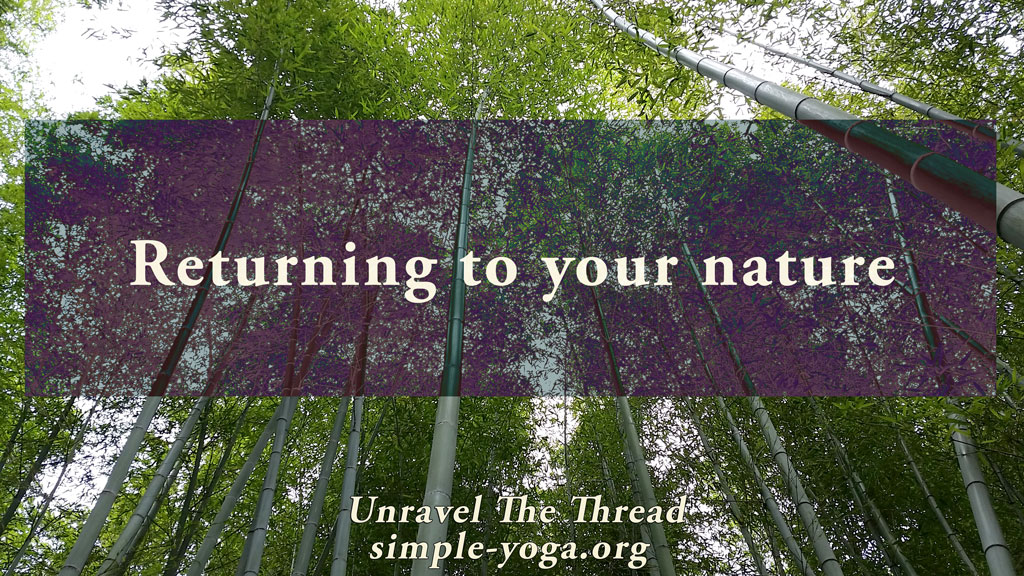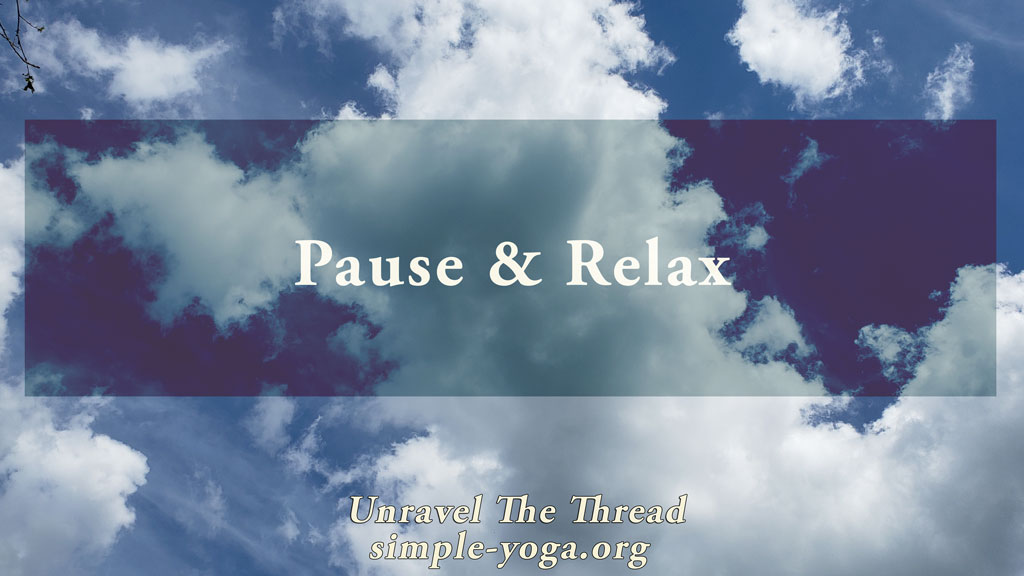
Returning to your nature
April 3, 2023
Pause and relax
April 17, 2023
Returning to your nature
April 3, 2023
Pause and relax
April 17, 2023Best friend or worst enemy?

Best friend or worst enemy?
In one of the popular contemporary commentaries to the Yoga Sutra, Swami Sacchidananda asks the reader to ponder: “Are you your best friend or your worst enemy?” This is a powerful and very useful question for anybody to contemplate. Today we will use this question to guide our exploration.
From the Yoga Sutra perspective, we are either aligned with our true nature (1.2 and 1.3) or we are getting distracted by our ways of being (1.4). Our ways of being are the patterns in our postures, movements, respiration, thinking, emotions, and interactions. Yes, as Patanjali reminds us (1.5), these patterns sometimes are painful and other times not painful. Indeed, some of our patterns can be useful in one context and maladaptive in other contexts. As we cultivate the practice of witnessing ourselves some of these patterns become quite obvious. At first, we notice that we are experiencing discomfort. When we feel that something is bothering us, some of us may find someone else to blame for what we are feeling. That choice initiates a chain of actions and reactions that we will participate in and experience for some time. When similar discomfort arises again, if we are able to reflect on the event, participants and actions, we may be able to recognize that some of our beliefs, preferences and tendencies might be contributing to the bothersome outcome. Every time a similar event takes place our ability to witness enables us to notice as we are making choices contributing to create the situation we find annoying or frustrating.
Our capacity to be present will make evident to us when our beliefs, intentions and actions are leading in a direction that is not beneficial. While at the beginning of the process we are at the mercy of patterns that we may not have recognized in ourselves, just bringing our awareness into our daily activities starts clarifying how we may be able to make sound choices. For instance, some days we wake up feeling energized, while other days we wake up feeling tired. Perhaps we do not pay attention to it, and we just accept that we seem to sleep better some days than others. If there are enough days when we are not getting sufficient rest, we may feel motivated to pay attention to the possible factors influencing the quality of our sleep. Observing these factors regularly will probably indicate some patterns including fluctuations in our bedtime and how our activities during the day and before bedtime (including exercise, diet, exposure to light and many others) are influencing how long and how well we sleep. Noticing our patterns makes it easier for us to explore ways of modulating our ways of being to find out if they are helpful or not helpful. Examining these patterns and their effects gives us direct experience (1.7) for better understanding how our sleep cycle works. Remember that in addition to our direct experience, we can also access the valid testimony of someone who is trustworthy (1.7) to inform the choices that are best for us.
When some of our habits are deeply rooted, we can find ourselves overriding our better judgment. The question is, at the time when one of our well-established habits is making us lean in a direction that we know is not useful, can we pause briefly? Can that pause offer us a moment to take perspective? This is when we can ask ourselves: “at this moment am I being my best friend or my worst enemy?”
Taking a moment to ask that question can make it easier to be conscious of the choice that we are making, even if the choice is going against our better judgment. Later, when we are annoyed or frustrated, we can remind ourselves of what happens when we choose not to be our best friends. Notice that you are still in charge of making your own choices.
You may also recognize that sometimes, especially when we are leaning in an unhelpful direction, we may create justifications for the unhelpful choice we are about to make. This sometimes emerges in words like, “Yes, I deserve this.” If this is the case, it may be helpful to clarify our definition of being our best friend. How do you define being your best friend? Can you be the kind of friend that never lets you down? As you try these ideas, please recognize that sometimes you consciously make a choice that is not the best for you at that moment. When you are conscious that you are overriding your better judgment already helps you acknowledge that you will need to take responsibility for the effects of your choices. Also, as with any other experiment, notice the effects of being your best friend. The feedback you receive can offer you great motivation to being your best friend more of the time.
I hope that this week you find some insights as you explore how you are answering the question: “at this moment, am I being my best friend or my worst enemy?” by examining your actions and their consequences. Also, be open to the possibility that becoming your best friend can also enable you to be a better friend to others.
If you prefer, you may listen to the podcast:
This content is based on the book Unravel the thread: Applying the ancient wisdom of yoga to live a happy life
If you find Simple-Yoga.org and Unravel the thread useful, consider supporting my labor with a donation, you may also donate using PayPal or Venmo. Thank you!
